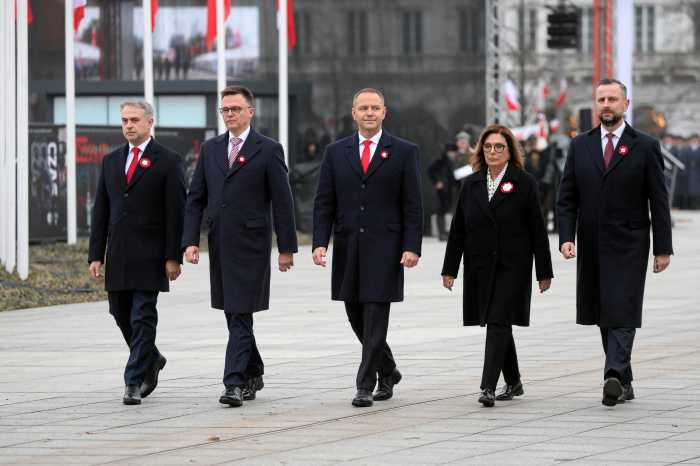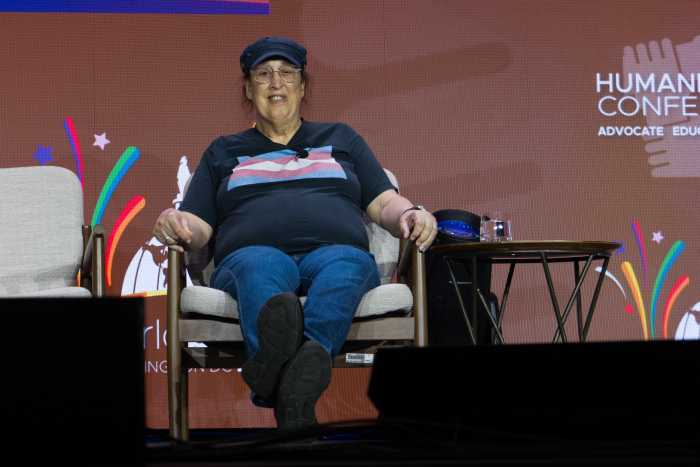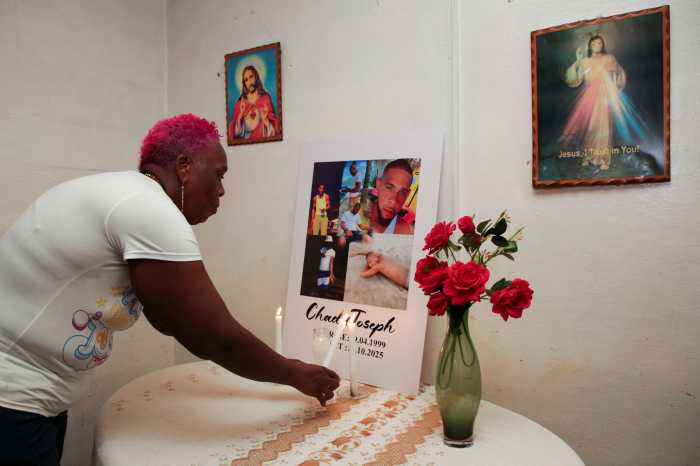Mirroring earlier clashes between fundamentalist Islam and more tolerant European societies, Berlin’s largest opera house, die Deutsche Oper cancelled four performances of a modernized version of Mozart’s “Idomeneo,” which included images of the severed head of the prophet Mohammed, because of an “incalculable security risk” for the theatre.
But Klaus Wowereit, Berlin’s openly gay mayor, said, “with all understanding for the concern and safety of the visitors and artists, I consider the decision of the director therefore as wrong. Our notion of openness, tolerance and freedom must be lived in the offensive.”
Gay Mayor Rejects Ban on Berlin Opera With Perceived Anti-Muslim Content
The opera was first performed in 1791, but Hans Neuenfels, the director, altered the content to show a provocative debunking of religious power. One character appears on stage with a bloody sack and shows the severed heads of Poseidon, Jesus, Buddha and Mohammed, the Muslim prophet. Islam bars representations of the prophet and recent depictions, most notably some mocking cartoons of Mohammed that appeared in a Danish newspaper, sparked violent reactions among some Muslims.
“We know the effects of the cartoon controversy,” Alexander Busche, a Deutsche Oper spokesman, wrote in a press statement.
A Berlin internal security commissioner warned Kirsten Harms, director of the opera house, that the Deutsche Oper could be a target of Islamic terrorists. While no threats were made, just the possibility of an attack was the reason “Idomeneo” was withdrawn.
Wowereit, a Social Democrat who was just re-elected, was not consulted on the cancellation plan.
“A voluntary self-limitation gives those who are fighting our values an anticipatory confirmation, which we ought not to concede to them,” Wowereit said. Angela Merkel, Germany’s conservative chancellor, described the cancellation as “self-censorship out of fear.”
A recent speech by Pope Benedict XVI in Bavaria, his birthplace, in which he quoted a 14th century text that attacked Islam, also received a violent response from some Muslims and that contributed to the hyper-sensitive climate in Germany.
On October 3, the opera house announced “Idomeneo” would go forward, but gave no date for the production.
German intellectuals, artists, the press, and politicians of all parties were consumed with the Mozart turmoil. In Spiegel-Online, the web site of Der Spiegel, a magazine, Henryk M.Broder, author of “Hurray! We are capitulating,” viewed the cancellation as surrendering to fundamentalist Islam. Broder wrote “And I am even as a secular, non-believing Jew insulted. I feel injured, discriminated against and excluded. Why is the head of Moses not there?”
The Neuenfels production of “Idomeneo” premiered in 2003 in a protest-free environment.
In 2001, the controversial Pim Fortuyn, an openly gay politician in the Netherlands, questioned whether fundamentalist Islam could be integrated into that society without threatening its liberal values. An animal rights activist assassinated Fortuyn, a center-right political figure, in 2002.
Germany is struggling with integrating its three million Muslims, its largest minority community.
The German government, currently a Social Democratic Party (SPD) and Christian Democratic Union (CDU) coalition, is attempting to accelerate the pace of integration and the opera controversy shifted attention away from a conference held in late September devoted to the assimilation of German Muslims. The summit included 30 Muslim groups and was organized by Wolfgang Schäuble, Germany’s interior minister and a CDU member.
The meeting was meant to address a range of topics including Islamic education in public schools and the participation of Muslims girls in swimming classes and class trips. It is not known if homosexuality and Islam was discussed.
The conference concluded with an announcement from Schäuble that the participants had agreed to view “Idomeneo.” The solidarity collapsed when Ali Kizilkaya, chairman of an Islamic council in Germany, said, “Artistic freedom does not mean that you have to view everything.”
Kizilkaya expressed no interest in viewing “a scene in which the head of the prophet is cut off.”
The CDU has conservative Christian roots, but has recently tackled issues that the party has historically ignored. The CDU government in Baden-Wittenberg, proposed a naturalization test that would ask Muslim applicants: “Imagine that your legally aged son comes to you and explains that he is homosexual and would like to live with another man. How would you react?”
That is one of two questions addressing homosexuality on the naturalization test. The test has not been implemented. It created a heated debate because of such questions and the targeting of one minority group with a litmus test for integration. The German Lesbian and Gay Union, a national organization, opposes the gay questions while the local chapter in Berlin-Brandenburg supports the inclusion of the questions.


































